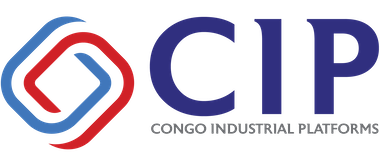Industrial Development in the DRC
Key investment opportunities in DRC
Forestry
Forestry is a key sector in the Democratic Republic of Congo (DRC) and boasts the largest harvestable forest cover in Africa. In fact, over 50% of Africa’s tropical forest falls within the DRC, making it a key player in the forestry industry. Benefits for wood transformation industries in the DRC include :
- Diverse variety of wood:
Investing in the DRC’s forestry sector offers access to over 950 tree species, including highly desirable species such as Tola, Tali, Padouk, and Wenge, which are suitable for a range of applications such as plywood, veneers, exterior joinery, furniture, and luxurious finishes. - Extensive untapped investment opportunities:
The DRC is predominantly rich in high-quality species suitable for all kinds of wood transformation. Major species include Afrormosia (African Teak), Wenge, Tali, and Padouk. - Prospects for sustained growth:
The country offers important growth opportunities in timber processing. Kin-Malebo SEZ will principally be geared towards timber processing. - Conducive legal frameworks:
The new investment code and the revised forest code offer unique tax and custom duties advantages for potential investors in SEZ.
Agriculture
With over 80 million hectares of arable land and only 10% currently in use, the agriculture and agro-processing sectors offer massive untapped potential for investment. The DRC’s main agricultural products include tubers, cereals, leguminous plants, soya, peanuts, and fruits. Reasons to consider the DRC for agriculture investments include:
- Prospects for sustained growth:
In 2021, the agriculture sector contributed 19% of DRC’s GDP, and is expected to increase over the years. - Inducive natural conditions:
The DRC enjoys favorable climatic conditions and fertile soil types which foster the growth of various crop types. - Conducive legal frameworks:
The new Investment code and the revised Agricultural code offer unique tax and custom duties advantages for potential investors and promote the use of renewable energy technologies. - Supportive infrastructure:
To boost the production and processing of agricultural products like maize, cassava, poultry, and livestock, the DRC has encouraged agro-industrial parks projects.
Energy
The Democratic Republic of Congo is a powerhouse with tremendous energy potential. With Africa’s largest hydropower potential of about 100,000 MW, as well as significant reserves of oil and gas, investing in the DRC’s energy sector presents an opportunity for businesses to tap into a valuable and rapidly growing market. Reasons to invest in the DRC energy sector include:
- Untapped investment opportunities:
The country offers vast investment opportunities in renewable energy including solar energy, hydropower, wind energy, biomass energy, and geothermal power. Other leading opportunities include off-grid networks, natural gas, and power generators supply. - Prospects for continuous growth:
With increasing economic growth, population and foreign direct investments, the demand for diversified energy supply is forecasted to be continuously growing.
Infrastructure
With a strategic location in the heart of Africa, the DRC serves as a vital link for connecting the region’s trade and commerce. The country is undergoing significant infrastructure development, including transport networks, energy, water supply, and communication systems, to enhance its connectivity and economic growth. Investing in the DRC’s infrastructure sector can open avenues for profitable ventures, create jobs, and boost socio-economic development. Below are the reasons to consider the DRC for infrastructure investment:
- Prospects for sustained growth:
The DRC is experiencing important investments in construction modernization of real estate and infrastructure projects. Major projects include national road networks, railway rehabilitations, and real estate infrastructure. In major urban centers, there is a growing demand for commercial, industrial, and residential constructions. To cater for the needs of the population, both high-end standards and affordable buildings are in demand. - Favorable legal frameworks:
To promote investments, the DRC has fully liberalized the sector and highly encourages foreign direct investments, through public private partnerships.
Mining
The Democratic Republic of the Congo (DRC) is home to the largest reserves of mineral resources in the world, worth an estimated 24 trillion USD. The southern and eastern provinces are particularly rich in critical minerals for energy transition. In 2019, extractive industries contributed 46% of the government’s revenues and 99.3% of exports.
- Top investment opportunities:
The DRC’s largest mineral reserves include coltan, lithium, gold, diamond, copper, nickel, and cobalt. There are also opportunities for power generation for mining companies, as well as equipment leasing and financing. - Supporting policies and infrastructure:
The DRC is actively promoting the development of logistics services and necessary infrastructure to improve mining exploration and local processing. Attractive policies have brought in some of the world’s largest mineral resource companies to invest in the DRC. - Promotion of local processing:
The DRC is currently investing in the creation of industrial zones to enhance local processing of its rich mineral wealth, promoting job creation and economic growth.

